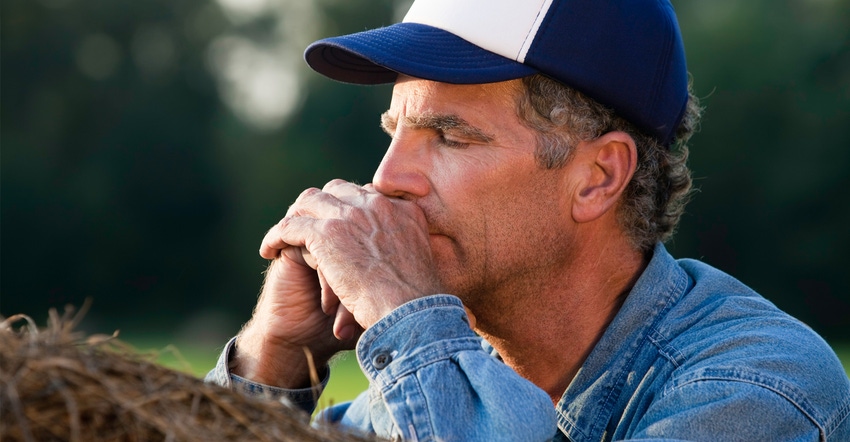April 21, 2020

An informal survey of soybean growers finds COVID-19 is causing stress and highlighting the need for improved internet access in rural America.
The survey was an initiative of the American Soybean Association COVID-19 Task Force, a 12-person group formed in March consisting of ASA board members and senior staff, state affiliate leaders, and a representative from sister soybean organizations United Soybean Board and U.S. Soybean Export Council. It was sent to approximately 140 farmer leaders serving on the boards of ASA, USB and USSEC, with 60% of those persons participating.
“We were struck immediately by how many respondents talked openly about the high levels of stress and anxiety on their farms," said Ryan Findlay, CEO of ASA. "Fear at smaller operations that critical workers will get sick, concerns over taking care of elderly parents and children not able to attend bricks-and-mortar classrooms right now, worries over workers scared they will get sick not showing up—and that’s only the important human aspect before you even get into prices, loan access and aid concerns, input delays and a host of problems hitting tangential industries like pork, beef, poultry, and dairy on which our industry relies.”
When asked if COVID-19 has highlighted the need for rural broadband, a whopping 85% replied that there is a serious need on either their own farms or their neighbors’ farms for improvements.
Responses came from 26 states and farms of various sizes. In total, 86 anonymous surveys were returned.
An overwhelming majority of survey respondents – 82% –indicated they are practicing social distancing, washing hands, and other practices to minimize exposure, with very few (3%) indicating they are not making any changes. Nearly three-quarters, 73%, of respondents were moderately or extremely concerned about their farm being impacted by COVID-19. Just less than half, 44%, said the pandemic has already affected their farms, and another 33% feel trouble is likely on its way. While more than a fourth are uncertain how to respond to exposure, most are working on plans for both employee safety and continuing operations should persons become sick. Yet, the prevalence of open-ended responses citing fear and stress is deeply concerning.
“It is even more evident that we must all be aware of the importance of checking on our neighbors, making sure they have resources not just to farm, but to maintain both physical and, importantly, mental health in what is an ongoing time of extreme stress in our ag communities. For soy, we have felt impacts first from China trade issues, and now from coronavirus, that are compounding an already weakened farm economy,” Findlay said.
Will the CARES Act help?
Regarding the Coronavirus Aid, Relief and Economic Security Act, 55% are unsure if CARES offers adequate relief for agriculture, and another 40% said it does not. Additional aid resources and clarity on existing resources were requested, with questions regarding CARES programs such as the Small Business Administration’s Paycheck Protection Program and Economic Injury Disaster Loan Program, which program farmers are ineligible for at this time. Respondents also wanted information on H-2A worker inclusion in coronavirus relief packages and Commodity Credit Corporation funding.
“A clear need for additional aid was expressed by the bulk of soy growers who responded to the COVID-19 survey, so USDA’s announcement of the Coronavirus Food Assistance Program could not be more timely," said Kevin Scott, ASA Vice President and Chair of the association’s COVID-19 Task Force.
The ASA COVID-19 Task Force and ASA staff will use the materials submitted to assess ways to communicate with leaders in Washington, D.C., and collaborate with the soybean community to serve the soy industry and protect its interests during the pandemic.
Source: American Soybean Association, which is solely responsible for the information provided and is wholly owned by the source. Informa Business Media and all its subsidiaries are not responsible for any of the content contained in this information asset.
Read more about:
Covid 19You May Also Like




